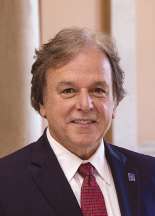
Seven Hills to revisit influential 2015 report on Worcester immigrants
Worcester nonprofit Seven Hills Foundation has plans to revisit its influential 2015 report, which found foreign-born residents accounted for 37% of all business owners in Worcester and spent an estimated $472 million across the local economy that year.
At the time of the report’s publication, Worcester had 37,970 immigrants from 85 different cultures, making up 21% of the city’s total population.
Seven Hills is motivated to update the report from a number of reasons, including understanding the challenges in Worcester and looking at the impact of the immigration policies from the President Donald Trump Administration.
Michael Goodman, executive director of the Public Policy Center at UMass Dartmouth, said the ongoing immigration restrictions are limiting new foreign-born individuals from joining the community.
Seven Hills’ original report shows the majority of Worcester’s current foreign-born residents entered the country after 1990. Goodman worries the number of foreign-born residents will shrink in the immediate future due to the changes in U.S. immigration policies.

“The cutbacks and restrictions will limit refugees from joining the community. Ultimately, they will not be able to fully participate in our economy and make the kinds of contributions that we were able to document in that last study,” said Goodman.
A direct follow up to the 2015 study has not yet been completed; however, Goodman made a firm hypothesis, saying, “The entrepreneurial and small business activity that we documented in the last report are likely a bit more constrained in this environment than they were several years ago thanks to a number of counterproductive federal policies.”
Goodman said foreign-born residents of Worcester, on balance, are net positive contributors to the community and to the local economy.
“That’s a fact that doesn’t get fully appreciated in the ongoing public discussions and debates about immigration and immigration policy,” he said, asking, “What is the cost to the community if we do not have access to this talent?”
Diverse business
Milka Njoroge was born in Kenya. She arrived in Worcester in 2004 as a student at MCPHS University. After graduating with a doctor of pharmacy degree, she saw a need and an opportunity to provide home health care to underserved communities, including low-income individuals, seniors, and those with chronic medical and mental health conditions.
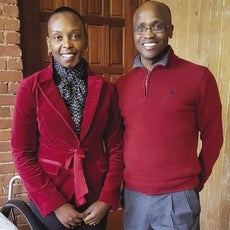
“Being in health care, it was ideal that Worcester has the second highest concentration of hospitals and health care facilities in the state,” Njoroge said. “In addition, the lower cost of living in Worcester made it economical to operate a business.”
In 2012, she co-founded Century Homecare, LLC, a nationally accredited and Medicare Certified home healthcare agency. Njoroge found the City of Worcester very helpful while locating a facility with parking, which she explained is an essential accommodation for staff who frequently come and go from the office. She has served as the CEO of Century Homecare since 2017; it is now the second-largest minority-owned business in Central Massachusetts.
Njoroge has identified a demonstrated need in Central Massachusetts for home healthcare.
“With a rapidly aging U.S. population and an overwhelming desire to receive care at home rather than in institutional settings, the overarching challenge facing home health care is the number of unmet homecare needs especially for chronic medical conditions,” she said.
Njoroge is just one example of a foreign-born business owner making large contributions to the local economy. Her decision to pursue a STEM career is consistent with the 2015 report’s finding foreign-born adults are more likely than natives to have earned a degree in key STEM fields.
Next steps
Seven Hills Foundation President David Jordan has spent a lot of time considering the next steps for tracking Worcester’s foreign-born residents. He hopes the 2015 report helped the community understand immigrants do not just bring economic value to Worcester, but social and cultural value.
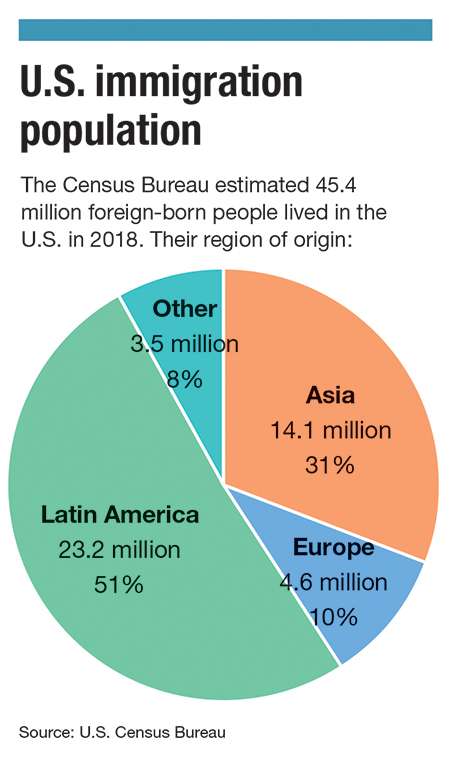
This year, the City of Worcester launched its Diverse Business Directory to highlight new American proprietors who are helping the community to thrive. After six months, the directory includes 121 listings.
Jordan has monitored the growth of English language learners enrolled in the Worcester Public Schools since the report was published in 2015. In the original findings, Seven Hills scrutinized an increase in ELL’s from 13.5% to 35.1% between 2004 and 2015. In 2016, that number jumped to 38.4%, but has since declined to 32.8% according to WPS’s 2019 data.
According to the Seven Hills 2015 report, Worcester had an ELL student-to-teacher ratio of 62:1 compared to a statewide ratio of 40:1.
“That’s where we need to invest,” Jordan said. “We are not adequately providing them job options and educational opportunities while they're still in school.”
Another data point surprising Jordan during the initial study was a discrepancy between Puerto Ricans born on the island versus those born on the mainland. The report acknowledged while Puerto Ricans are not immigrants in the traditional sense, they face many of the challenges posed to foreign-born groups.
For Puerto Ricans, 71% of those mainland-born and 81% of the island-born live at or below 200% of poverty. Citywide, 41% of residents live at or below 200% of poverty, the report said.
“We need to make a conscious effort with English language learners from the island-born Puerto Rican cohort. We need to tell them, ‘We're going to invest in you for your future,’” Jordan said. “If we don't invest in them, we will reap exactly what we sow.”
Jordan intends to capture fresh data in the spring to create a longitudinal study to lead to increased opportunities for island-born Puerto Ricans and other foreign-born residents of Worcester in the future.






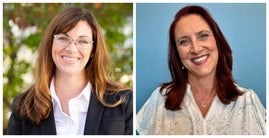
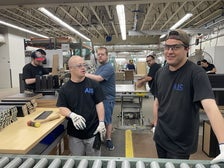

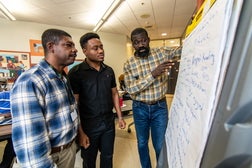



0 Comments